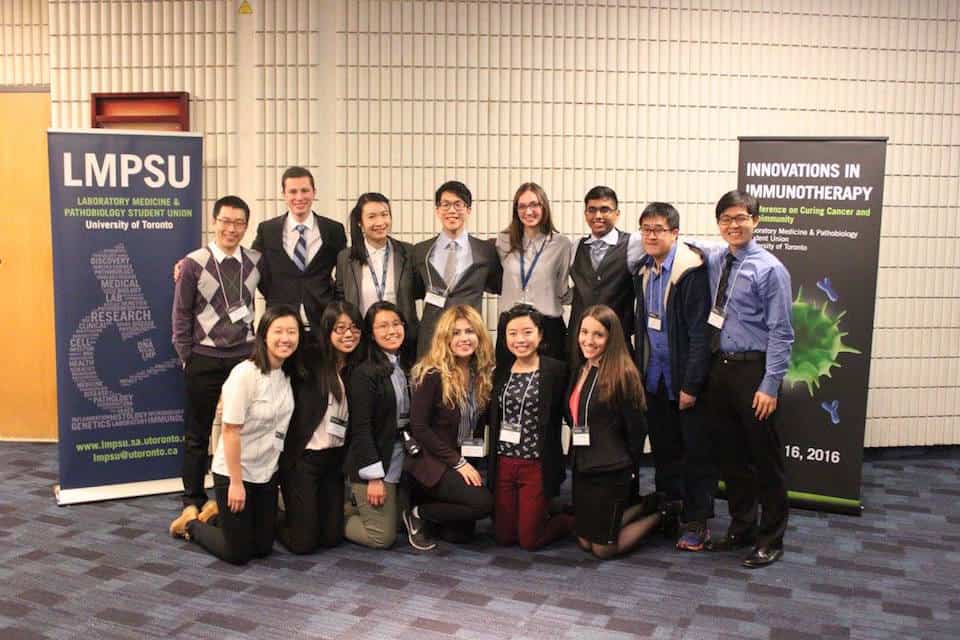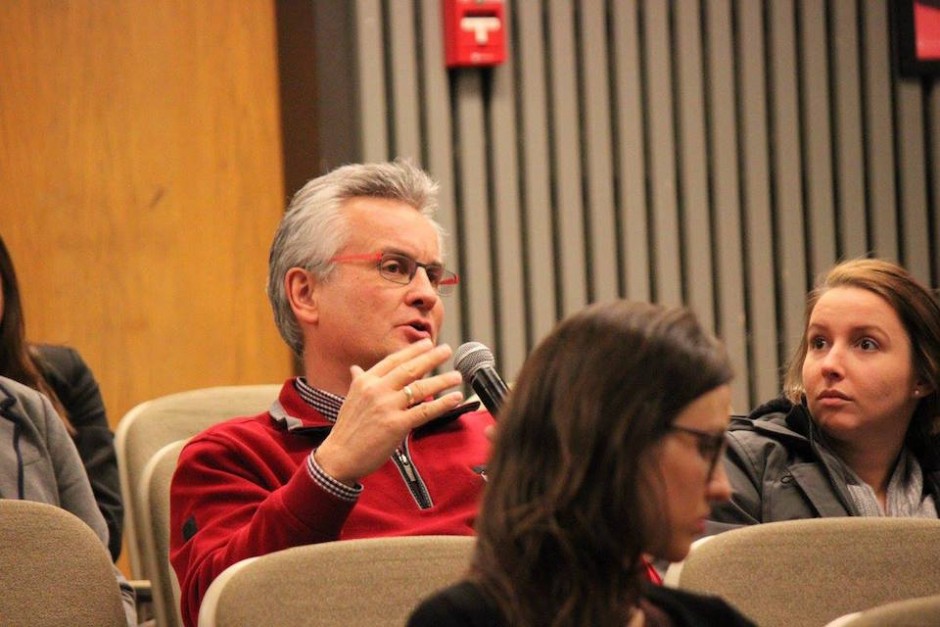Will a U of T student one day discover the cure for cancer? The Laboratory Medicine and Pathobiology Student Union (LMPSU) certainly hopes so.
Last week, the group hosted its annual conference, “Innovations in Immunotherapy: Conference on Curing Cancer and Autoimmunity” on the treatment’s medical potential.
Immunotherapy uses the body’s own immune system to fight disease, and is currently being developed for treating autoimmune diseases and cancer, which currently affect 50 million North Americans. Cancer kills about 78, 000 people per year in Canada alone.
Co-presidents of the LMPSU, Charles Lee and Jelena Tanic, explained that they focused on immunotherapy precisely for the promise the treatment demonstrates. “Although it is in its infancy, immunotherapy can overcome numerous limitations of traditional treatments, and we wanted to highlight its promise,” Lee explained. “Some of the most amazing discoveries are being made right here at U of T. We wanted other undergraduate students to be inspired and also pursue research in these exciting fields.”
With over 200 attendees and seven distinguished researchers as speakers, the conference led to lively discussion and debate. Whether or not immunotherapy will be as successful as one hopes to be remains to be seen. However, as noted by Dr. Alan Lazarus of the Department of Laboratory Medicine and Pathobiology, “[It’s] exciting when you don’t know the answer … You don’t know which [method] will be successful.”
The conference began with a lecture from Dr. Juan Carlos Zúñiga-Pflücker, the chair of U of T’s Department of Immunology, on his research in generating functional T cells in vitro for bone marrow transplants in individuals with defective or no T cells. As a patient’s cancer treatment progresses, there is often a period of immune deficiency that could be mediated with these transplants.
Zúñiga-Pflücker’s talk was followed by a talk from Dr. Goetz Ehrhardt, also from U of T’s immunology department, who presented his research on using antibodies from sea-lampreys to diagnose cancer with greater accuracy than antibodies in use today.
The third lecturer, Dr. Lazarus, discussed the use of intravenous immunoglobulins and monoclonal antibodies to treat autoimmune disorders. He specifically spoke about thrombocytopenia, a condition characterized by a decreased platelet count in the body.
Later in the day, a panel discussion on the concerns surrounding immunotherapy began. Since immunotherapy is just beginning clinical trials, there are concerns about its effectiveness and whether or not it can reasonably extend a person’s life more than if the patient were left untreated.
Overall, the LMPSU’s conference was a success; it managed to educate the general public on what immunotherapies are, and what they can do for treating disease. One can only hope that research can be translated into successful treatments, in the future.



